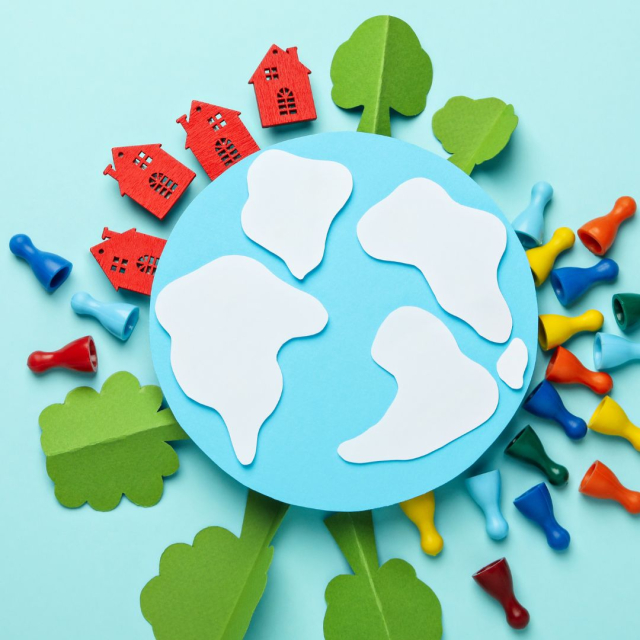World Days are commemorative dates established by international organizations such as the UN, WHO, or UNESCO, which seek to raise public awareness about specific issues, promote global action, and foster cultural understanding. In Peru, these celebrations not only reflect the country's commitment to global issues, but also highlight how local values and customs are integrated into these commemorations.
1. World Environment Day (June 5)
World Environment Day is a United Nations initiative to promote global awareness and action in favor of environmental protection. In Peru, this day is celebrated with a variety of activities ranging from beach and park clean-up campaigns to educational events in schools and universities.
Local NGOs, such as the Association of Research Centers in Science and Technology (ACICyT) and the Peruvian Foundation for the Conservation of Nature (FPCN), organize workshops and talks on sustainability and conservation. In addition, in cities such as Lima and Cusco, tree planting events and ecological fairs are held that promote sustainable products and practices.
2. World Health Day (April 7)
World Health Day is an opportunity to focus attention on global health and well-being issues. The World Health Organization (WHO) chooses a specific theme each year to address health challenges.
In Peru, the Ministry of Health coordinates prevention and health promotion campaigns. Clinics and hospitals organize open days to offer free health screenings and advice. Universities also participate with lectures and workshops on public health topics, such as the prevention of infectious diseases and the promotion of healthy habits.
3. International Women's Day (March 8)
International Women's Day celebrates achievements and advances in gender equality and draws attention to the struggles that persist around the world. In Peru, this day is commemorated with activities that promote gender equality and women's rights.
In Lima, marches and demonstrations organized by feminist groups and human rights organizations take place. In addition, cultural events are held, such as art exhibitions and film screenings that highlight the contribution of women in Peruvian society. In the academic field, universities and research centers present studies and conferences on topics related to feminism and gender equality.
4. World Water Day (March 22)
World Water Day, promoted by the UN, focuses on the importance of fresh water and the sustainable management of water resources. In Peru, this day is particularly relevant due to the richness and diversity of its water resources, including the Amazon and the Andes.
Environmental and government organizations organize activities such as river and lake clean-ups and awareness campaigns on responsible water use. Schools and local communities participate in educational events that highlight the importance of conserving water and protecting the country's water sources. In regions such as the Amazon, activities are held to promote the conservation of aquatic ecosystems.
5. International Day of Peace (September 21)
The International Day of Peace seeks to promote peace and conflict resolution around the world. In Peru, a country with a rich history of social and political struggles, this date has a special resonance.
The International Day of Peace is celebrated with events that encourage dialogue and reconciliation. Organizations such as the Peace and Hope Foundation organize conferences and round tables on peacebuilding and conflict resolution. In schools, educational activities are held on the importance of peace and tolerance. In addition, cultural events such as concerts and theater performances are held that advocate harmony and peaceful coexistence.
6. World Food Day (October 16)
World Food Day focuses on combating hunger and malnutrition, and promoting sustainable food systems. In Peru, a country with a rich diversity of agricultural products and an extensive culinary tradition, this day is celebrated with a focus on food security and nutrition.
Food fairs are held that highlight local products and traditional cooking techniques. Organizations such as the World Food Programme (WFP) and the Peruvian Network for Action Against Hunger (REDACAH) organize campaigns to raise awareness about hunger and malnutrition. In addition, workshops and talks are held in rural communities on sustainable agricultural practices and proper nutrition.
7. International Human Rights Day (December 10)
International Human Rights Day commemorates the adoption of the Universal Declaration of Human Rights and promotes the protection of fundamental rights around the world. In Peru, this day is celebrated with a focus on the promotion and protection of the rights of all citizens, especially the most vulnerable groups.
NGOs and human rights organizations, such as Amnesty International Peru and the Commission on Human Rights (COMISEDH), organize events and activities to raise awareness about the importance of human rights. Conferences, panel discussions and exhibitions are held that address issues such as equality, justice and the protection of the rights of indigenous peoples and other marginalized groups.
8. World Tourism Day (September 27)
World Tourism Day celebrates the role of tourism in economic and cultural development. Known for its rich cultural heritage and stunning natural landscapes, Peru uses this date to promote sustainable tourism and highlight its attractions.
Tourism agencies and the Ministry of Foreign Trade and Tourism (MINCETUR) organize special events and promotions to attract visitors and promote responsible tourism. Tourism fairs and cultural events are held to showcase the diversity of Peru's tourism offering, from Machu Picchu to the Nazca Lines. Awareness-raising activities are also organized on the impact of tourism on local communities and the environment.
World Days offer an invaluable opportunity to reflect on global issues and mobilize communities to take action. In Peru, these celebrations not only align with international goals, but also reflect the country’s rich cultural diversity and tradition of social engagement. Through a combination of educational events, community activities, and cultural celebrations, Peru demonstrates its dedication to improving global well-being while honoring its own identity and values.
